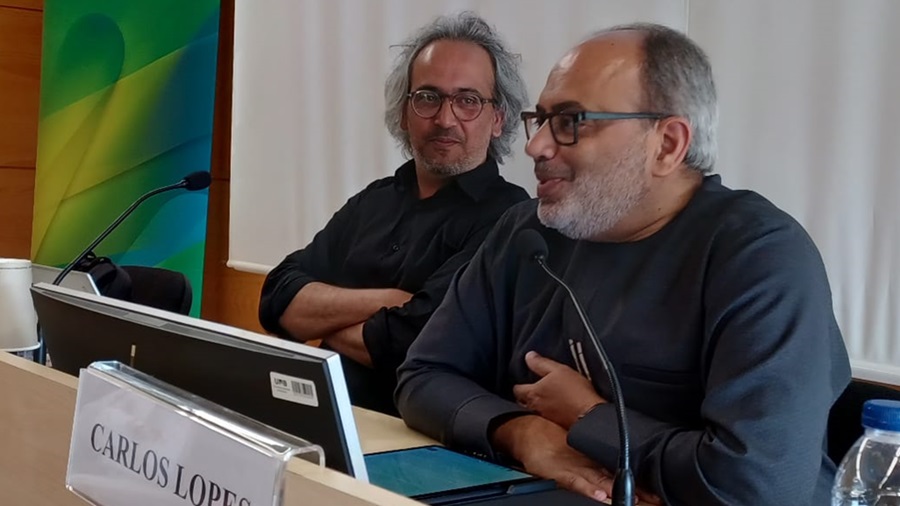Carlos Lopes denounces "the shared self-deception" regulating relations between Africa and Europe
Guinea-Bissau sociologist and economist Carlos Lopes spoke yesterday at the UAB Faculty of Translation and Interpretation on the “shared self-deception” that governs relations between Africa and Europe: "Europe believes that Africa needs assistance and moral guidance, and African countries pretend to accept this framework of relations as a condition for obtaining resources even if it limits their sovereignty". Lopes was presenting his new open access book The Self-Deception Trap. Exploring the Economic Dimensions de Charity Dependency with Africa-Europe Relations (Palgrave/Springer) at an event organised by the José Saramago Chair.

The content of his conference and of the book he is promoting is based on his experience in the field of international institutions: Lopes is a high representative of the African Union at the United Nations and was UN assistant secretary general during Kofi Annan's mandate. According to the expert, “the European Union and the United States preach universal values” but are basically interested in the “mineral resources” of the African continent. “The EU-Africa summits,” he reflected, "illustrate the European insistence on imposing its own criteria and have undermined the possibility of a common agenda".
According to Lopes, the starting point should not be the questions that Europe is asking but those that Africa should be asking, such as “what role Africa can play in the reconfiguration of the global economy and, in particular, in strategic areas” such as critical minerals and energy resources. The Guinean specialist advocated “a structural transformation that will enable Africans to participate in the knowledge economy”.
The African continent, Lopes recalled, is uniquely affected by current dynamics such as the rise of authoritarianism, the acceleration of climate change, the crisis of the multilateral order, and technological revolution. He also affirmed that all this should be seen as a “historical crack that allows us to rethink Africa's role”. He made special reference to the continent's position in the world's demographic transformations, given such surprising circumstances as the fact that half of the people born in the world are now born in Africa. By way of example, Lopes explained that Japan's population has an average age of 52 years, while that of Africa as a whole is 19 years.
Demographics is one of the reasons why China, which “will soon have a population problem” that will impact its labour market and trade dynamics, has attached so much importance to Africa in recent years. He went on to explain some of the characteristics of Sino-African relations. According to Lopes, among the 54 states on the continent, "one group is considered strategically important in China. Another group is commercially important but not strategically important. And a third group, generally the smaller ones, are not important." Nevertheless, China invests in all of them because “reputational capital” counts for them even more than economic relations.
Academic leadership
Nazir Can, lecturer in the Department of Translation and Interpreting and East Asian Studies, introduced Lopes and moderated the event. He recalled that Professor Lopes had already given a talk at the faculty in 2023 and spoke about the lack of knowledge and the distancing imposed by colonial dynamics despite the growing importance of the African continent. In this sense, he affirmed that the Faculty of Translation and Interpreting of the UAB has “all the tools to lead an academic approach to Africa”, a field of studies that still has an incipient presence in Spain. And he gave as an example the attention already devoted to the continent in the activity developed by the José Saramago Chair.
Also speaking at the presentation of the event were Faculty Dean Simona Skrabec, who said a few words of welcome, and Vice-Rector for Culture and Language Policy Laura Santamaria, who recalled that among the inequalities that mark the relations between the African and European continents, there are also linguistic inequalities. Secretary General Lorena Elvira, of the Department of European Union and External Action of the Government of Catalonia, praised the “inspiring academic production” of Lopes and affirmed that the Govern “is firmly committed to multilateralism and relations between equals” in terms of relations between the EU and Africa.
The UAB, with Sustainable Development Goals
Reduced inequalities
Quality education